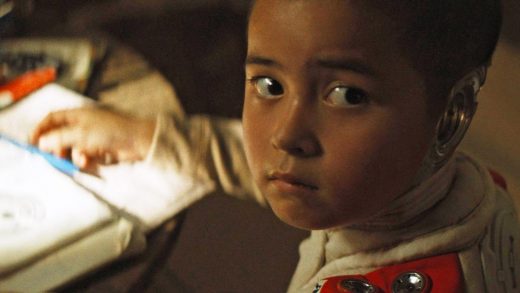:format(webp)/https://www.thestar.com/content/dam/thestar/entertainment/books/reviews/2022/06/01/georgia-toews-debut-novel-breaking-down-throwing-up-in-a-realistic-story-of-addiction-and-survival/georgia_toews.jpg)
When readers first encounter the initially nameless narrator of “Hey, Good Luck Out There,” the gritty and powerful debut novel from Toronto writer Georgia Toews, she is being admitted to a rehab facility. Not altogether willingly. In fact, the novel’s first line is spoken by a counsellor: “Will she run?”
It’s a subtly unsettling moment that sets the tone for the book as a whole: the narrator is being spoken about, not addressed. She is powerless, unable to speak for herself.
The reader knows nothing about her, not even her name.
The novel begins with the narrator’s institutionalization, on the heels of an intervention for her alcoholism, and follows the next months, as she begins her recovery in the locked facility and, later, back in the world.
While she is careful to stress that the book is fiction, Toews has been up front in affirming that the story is rooted in her own experience as an alcoholic, checked into a rehab facility by her mother, award-winning Canadian writer Miriam Toews. And, like her mother, Toews weaves her lived reality with a powerful imagination and a keenly honed voice to create a novel that rings, at every point, of truth.
At every step in the narrative, Toews defies the reader’s expectations for the story, dismissing easy platitudes in favour of the complex ambiguity of lived experience. The rehab facility, for example, is neither a haven nor a hellscape, as one might expect. The relationships the narrator builds there are neither affirming nor negative. Her abortion — the pregnancy the result of a sexual assault — is neither traumatic nor triumphant. Instead, everything is treated with a weary, experienced matter-of-factness, a blend of hope and resistance offset with isolation and desperation. The narrator is surrounded by women, peers, all suffering, all in pain, but there is little in the way of connection or bonding.
Things worsen as she leaves the rehab centre, as the realities of daily life press against the fragility of her sobriety. There is a sly humour to the seemingly endless lineups to view apartments “weeks or days away from being condemned” that does nothing to offset the horror of the experience. Similarly, her job at the Keg is worse than a dead end: “I was a f—ing professional steak slinger, this was what the job was all about, selling glamour and sex (and steak, but that was an afterthought) at marked-up prices.” Her sobriety — and her life — hang by a thread.
Most significantly, perhaps, the novel lacks much in the way of a traditional narrative arc. We are accustomed to expect two outcomes from an addiction story, either triumph or tragedy. Instead of either, Toews provides us with a realistic, grinding, account of survival, white-knuckling through each day, “watch(ing) the clock run down to 2 a.m.” when drinking will no longer be an option.
“Hey, Good Luck Out There” is a surprising, at times shocking, read. Toews writes commandingly not only of desperation and temptation, but of the world — and Toronto — as a whole. It’s an angle and perspective that is likely unfamiliar to most readers, a glimpse into existences that are more comforting to view as peripheral to our own. No matter how great our sympathy, it is easier to view someone clearly struggling, breaking down on the street or in a coffee shop, throwing up in an alley, unable to find a place to live or hold down a job, as somehow other. Somehow not us.
Toews skilfully breaks down that distance, that remove, to heart-rending effect. With its grim and remorseless approach, and our empathetic embrace of our narrator, so clearly broken and struggling, the novel isn’t by any means a pleasant reading experience, but it shouldn’t be: it is, instead, scarring and unforgettable, an essential reminder of our shared humanity, our common struggles.
JOIN THE CONVERSATION


